Stacked Column Charts
Stacked Column Chart
Utilizing stacked column charts, the total donation amount for each category is shown.
Columns are stacked on top of one another to achieve this.
When there are multiple data columns, you use the charts.
Example
The total number of Pokemon from generations 1 and 2 in the following type 1 categories: “Grass,” “Fire,” “Water,” and “Bug”
To keep up, you can duplicate the values:

- Select the range A1:C5

2. Select Clustered Column () from the drop-down menu after selecting the Insert menu and then the Column menu (
).
Note: To access this menu, expand the ribbon.
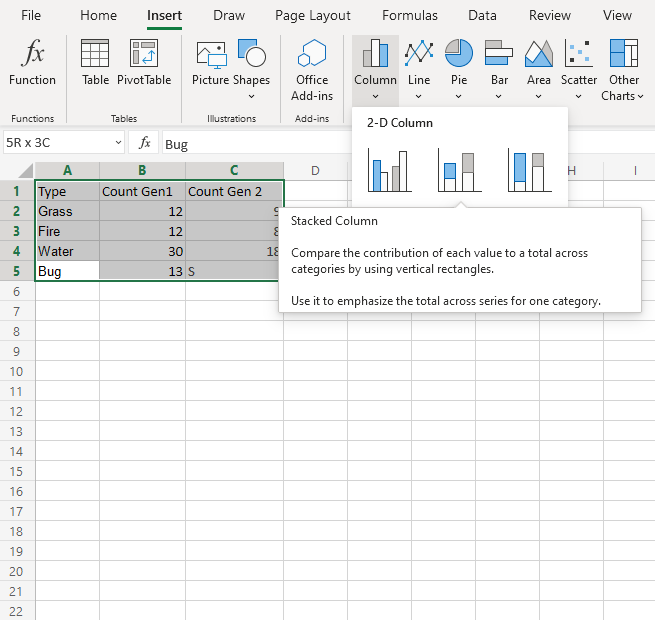
Following the steps above, you will get the following chart:
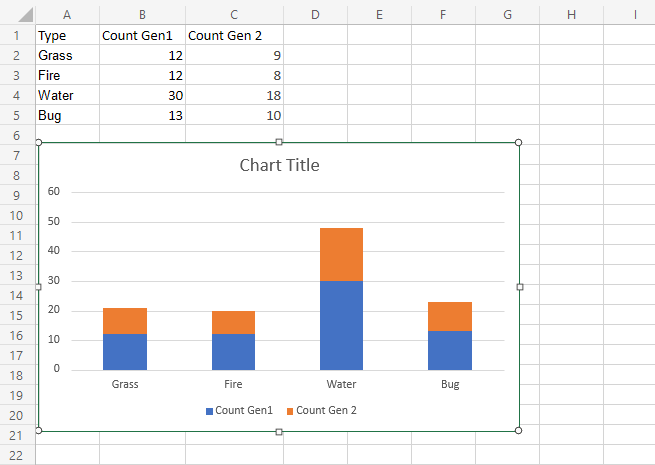
The figure provides a graphic summary of all the Pokemon in generations 1 and 2 that are of the “Grass,” “Fire,” “Water,” and “Bug” types.
Pokemon from Generation 1 are displayed in blue, whereas those from Generation 2 are displayed in orange.
Pokemon of the “Water” type are the most prevalent, while those of the “Fire” type are the least prevalent, according to this chart.
100% Stacked Column Chart
To show the percentage of contribution for each data column in a category, utilize a 100% Stacked Column.
In order to do this, a stacked column chart’s total value for each category is scaled to 100.
When there are multiple data columns, you use the charts.
Example
We aim to determine the percentage of Pokemon types “Fire”, “Water”, “Grass”, and “Bug” in generations 1 and 2.
To keep up, you can duplicate the values:
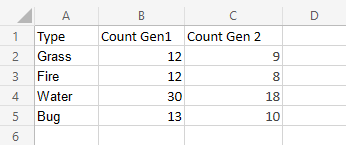
- Select the range A1:C5
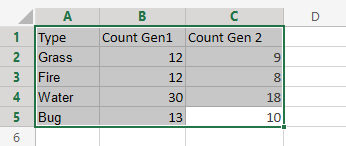
2. Select Clustered Column () from the drop-down menu after selecting the Insert menu and then the Column menu (
).
Note: To access this menu, expand the ribbon.
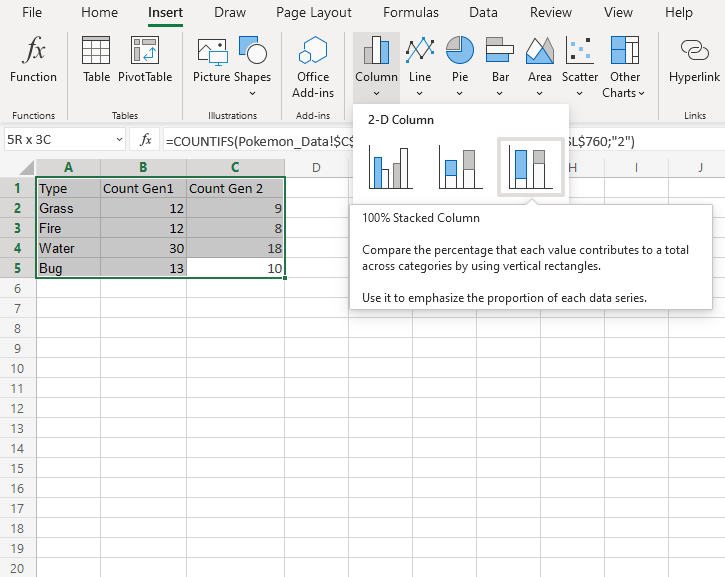
You will obtain the following chart by following the aforementioned steps:
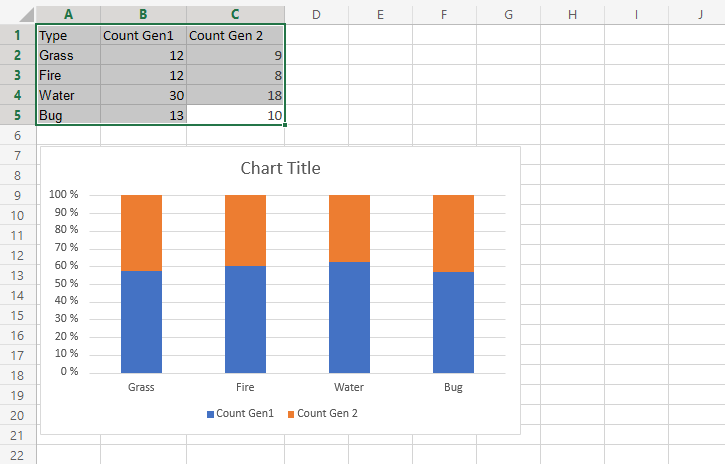
The graph provides a graphic summary of the distribution of Pokemon of the “Grass,” “Fire,” “Water,” and “Bug” types in generations 1 and 2.
Pokemon from Generation 1 are displayed in blue, whereas those from Generation 2 are displayed in orange.
More over half of Pokemon are from generation 1, according to this chart.
